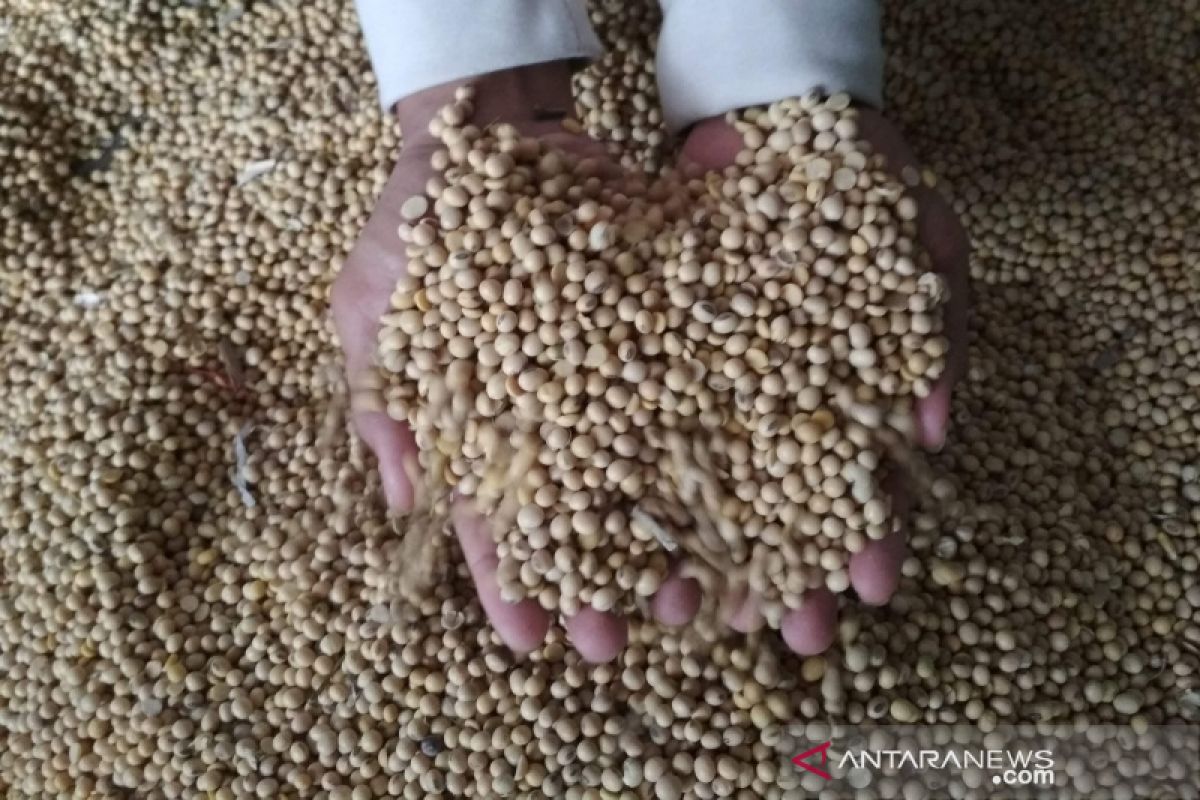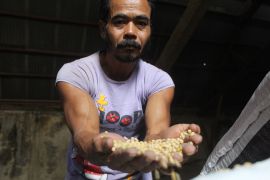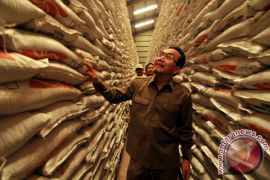Indonesia should strive to increase the nation’s productivity of soybeans to protect ourselves from price fluctuations in international trade. Increased the productivity of soybeans is also necessary to improve our competitivenessJakarta (ANTARA) - A consistent policy to increase soybean production is paramount to achieving self-sufficiency and lowering dependence on importing the commodity, according to Centre for Indonesian Policy Studies (CIPS) researcher Indra Setiawan.
"Indonesia should strive to increase the nation’s productivity of soybeans to protect ourselves from price fluctuations in international trade. Increased the productivity of soybeans is also necessary to improve our competitiveness," Setiawan noted in a press statement in Jakarta, Friday.
Statistics Indonesia (BPS) data showed that Indonesia’s soybean production only reached 632,300 tons in 2021, while imports during the same year stood at 2,475,286 tons.
According to data of the Food and Agriculture Organization (FAO), soybean requirements in Indonesia averaged 3.2 million tons annually, higher than the national production output. The discrepancy between annual soybean requirements and the national production must then be supplemented by imports.
Setiawan noted that currently, soybean imports were vulnerable to international price fluctuations. Research conducted by CIPS also deemed it necessary to evaluate currently enforced policies to enhance soybean cultivation.
He recommended soybean farmers to join farmers' cooperatives to enable easier access to government support and benefits.
Related news: Reviving Indonesia's self-reliance in soybean production
Related news: Farmers being encouraged to boost soybean production
Setiawan pressed for boosting soybean productivity and planting area in non-rice fields, as it only reached 13.18 quintals per hectare in non-rice fields, while planting soybean in rice fields yielded a higher figure of 17.4 quintals per hectare.
The government also needs to reduce disparity in food crops, including soybean, between Java and other regions by improving cultivation techniques, conducting mechanization, increasing access, and repairing irrigation systems for soybean cultivation areas outside Java.
Meanwhile, the Ministry of Trade has guaranteed the availability of national soybean stocks to the public at an affordable price despite recent price fluctuations in international trade, so soybean industries need not harbor concerns.
"The current soybean price fluctuations were influenced by the United States' soybeans crops that were yet to be harvested, thereby causing a price hike," Director General for Domestic Trade of the ministry Oke Nurwan stated.
Nurwan noted that the average price of soyabean in major cities and production centers was maintained at Rp10,000 per kilogram, while national availability of soybean stocks stood at 610 thousand tons, sufficient for at least another three months.
According to the Chicago Board of Trade (CBOT) price trend record, the international price of soybean until the fourth week of July 2021 stood at US$14.33 per bushel, increasing by 5.4 percent, from the US$13.60 per bushel price recorded in June 2021.
Related news: Positive growth in Q2 due to collective effort: Presidential Staff
Related news: Health Ministry urged to hasten vaccine distribution across Indonesia
Translator: M Razi R, Nabil Ihsan
Editor: Fardah Assegaf
Copyright © ANTARA 2021












